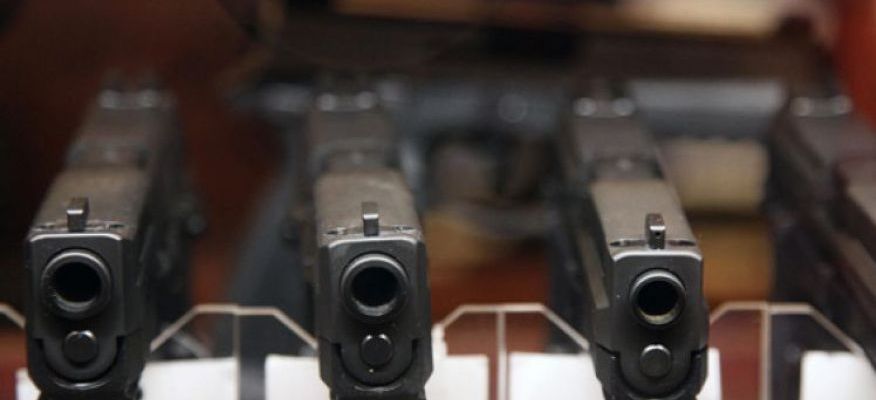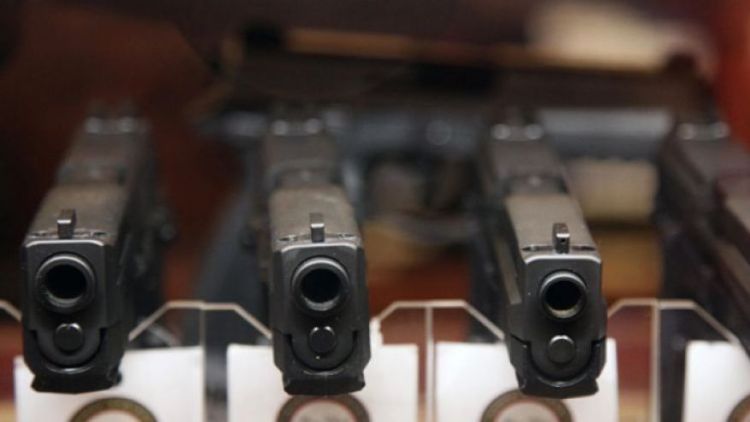A federal appeals court in Cincinnati deemed a law unconstitutional that kept a Michigan man who was committed to a mental institution from owning a gun.
The three-judge panel of the Sixth U.S. Circuit Court of Appeals unanimously ruled that a federal ban on gun ownership for those who have been committed to a mental institution violated the Second Amendment rights of 73-year-old Clifford Charles Tyler.
Tyler attempted to buy a gun and was denied on the grounds that he had been committed to a mental institution in 1986 after suffering emotional problems stemming from a divorce. He was only in there for a month.
Tyler’s lawyer, Lucas McCarthy, hopes that the ruling would have a “significant impact on the jurisprudence in the area of gun rights.”
The decision is the first by a federal appeals court to rule a federal gun law is unconstitutional since 2008. The U.S. Supreme Court’s ruling in D.C. vs. Heller struck down the Washington, D.C. ban on firearms ownership.
Federal law bans gun ownership for convicted felons, people under 18, illegal immigrants, drug addicts and those ordered by a court to a mental institution. The law also syas that people must have a chance to prove that their disqualifying disabilities have ended in order to possess a firearm legally.
Since 2008, states have been able to get federal grants to set up “relief from disabilities program,” which was defunded in 1992. Michigan has not set one up, which left Tyler without a way to prove that his so-called “disability” should no longer apply.
“The government’s interest in keeping firearms out of the hands of the mentally ill is not sufficiently related to depriving the mentally healthy, who had a distant episode of commitment, of their constitutional rights,” wrote Judge Danny Boggs, an appointee of President Ronald Reagan, for the panel.
Lucas McCarthy, Mr. Tyler’s lawyer, called the ruling “a forceful decision to protect Second Amendment rights,” and said he hoped it that it would have “a significant impact on the jurisprudence in the area of gun rights.”
The Justice Department didn’t respond to a request for comment.
The decision is the first by a federal appeals court to deem unconstitutional a federal gun law since the U.S. Supreme Court’s landmark 2008 ruling, called D.C. v. Heller. The Heller ruling, in which the court struck down the Washington, D.C., ban on firearms ownership, represented the Supreme Court’s first foray in decades into the scope of the Second Amendment.
Mr. Tyler recently attempted to buy a gun, but was denied on grounds that he had been committed by a court to a mental institution in 1986 after emotional problems associated with a divorce, Thursday’s opinion said. His commitment lasted less than a month.
Federal law bans gun ownership for a several types of people, including convicted felons, people under 18, illegal immigrants, drug addicts and those ordered by a court to a mental institution. However, federal law also says that people must have opportunities to prove that their disqualifying “disabilities” have ended and that they should be able to own a gun.
The federal government defunded its “relief from disabilities” program in 1992, said the opinion. Since 2008, states have been able to get federal grants to set up their own programs. But such programs are voluntary on the part of the states, and Michigan has yet to set one up, leaving Mr. Tyler without a venue by which to prove that his “disability” no longer should apply.
In other words, wrote Judge Boggs: “[W]hether Tyler may exercise his right to bear arms depends on whether his state of residence has chosen to accept the carrot of federal grant money and has implemented a relief program.… An individual’s ability to exercise a fundamental right necessary to our system of ordered liberty cannot turn on such a distinction.”
Adam Winkler, a Second Amendment expert and law professor at the University of California, Los Angeles, said the ruling could give momentum to the gun-rights movement. “I wouldn’t be surprised to see legal challenges to other parts of the [federal gun] law now,” he said.
Mr. Winkler also said the ruling could prompt Republicans in Congress to move to set up a new “relief from disabilities” program that would allow people to prove they are fit to own guns.



Reblogged this on Starvin Larry and commented:
This one could have huge implications,and sets a precedent that’s good for gun rights.
LikeLike